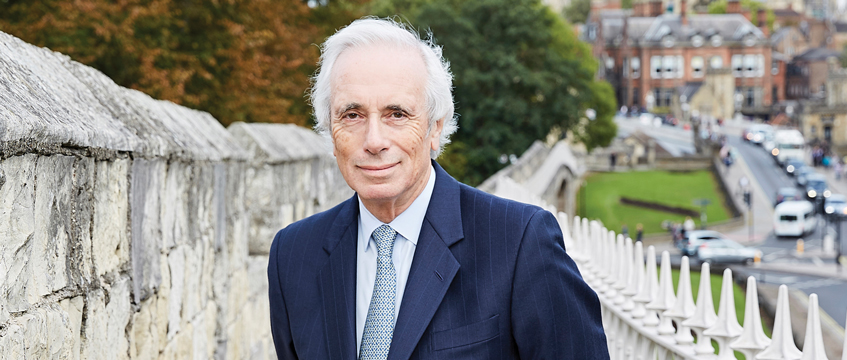Sinclair steps down as Palace chief executive
Neil Sinclair has stepped down as the chief executive of Palace Capital, the regional REIT he co-founded 12 years ago.
The news was announced as Palace reported rises in both profits and net asset value, saying Sinclair “will be stepping down from the board with immediate effect. He considers this the right time”.
Today the REIT reported that its net asset value had risen by 12% from £157.8m to £177.2m. The 37-property portfolio has shrunk from £282m to £259m as the REIT continues its disposal programme, while drawn debt has decreased from £128m to £101m.
Neil Sinclair has stepped down as the chief executive of Palace Capital, the regional REIT he co-founded 12 years ago.
The news was announced as Palace reported rises in both profits and net asset value, saying Sinclair “will be stepping down from the board with immediate effect. He considers this the right time”.
Today the REIT reported that its net asset value had risen by 12% from £157.8m to £177.2m. The 37-property portfolio has shrunk from £282m to £259m as the REIT continues its disposal programme, while drawn debt has decreased from £128m to £101m.
Sinclair co-founded Palace Capital with Stanley Davis and Andrew Perloff in 2010 and led the company from AIM to the Main Market in 2018, converting to a REIT in 2019.
Steven Owen, currently non-executive chair, will assume the role of interim executive chair.
Sinclair has been fighting off criticisms from investors, who had said that “something needs to change” at Palace to avoid “a very average performance”.
Sinclair told EG last week: “It’s a bit rich to come on now and moan about margins… Either they have a short memory or conveniently lost it.”
The largest shareholder in the company is Premier Miton Group with a 9.4% stake, followed by activist investor Peter Gyllenhammar with 9.24% and Winton Capital Management with just under 8%. Other shareholders include AXA Investment Managers and Allianz.
The results published today, for the year to the end of March, showed income from property was up by 27.5% to £19m, while IFRS profit before tax was £24.6m, up from a £5.5m loss last year. Adjusted profit before tax increased by 4% to £7.8m, largely due to asset management lease activity and reversal of the ECL provision.
Sinclair said: “If you do a development and you have £30m tied up, you are not getting a return on your £30m, which is why very often development companies show a loss for a year or two and then make a profit.”
Much of the focus for Palace is on its Hudson Quarter scheme in York, the redevelopment of a site acquired as part of a £39m portfolio purchase from Quintain in 2013.
In the company’s latest trading update, published last week, it said it had sold 80 of the Hudson Quarter flats – a figure that has since increased to 84. A £26m bank loan has been paid off, Sinclair said, and the cash balance at the end of March was £28m. The office space is now close to 75% let. Sinclair said the lower returns on the development project were always to be expected.
Palace added that its disposal strategy was currently ahead of target, with £31.5m of gross proceeds achieved – a 19% rise on book value.
To send feedback, e-mail piers.wehner@eg.co.uk or tweet @PiersWehner or @EGPropertyNews











